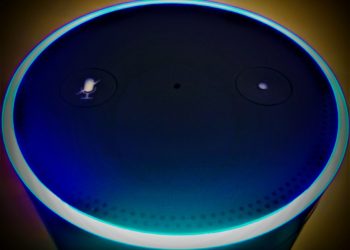Every now and then you go to a conference and find yourself inspired while listening to a talk. This happened to me recently at the Researcher to Reader Conference held in London in March. The talk was entitled, “The Rise of the User”, given by Jan Reichelt. Jan is a co-founder of Mendeley – an innovator. His message in many ways was simple: In every publishing organization you need a rebel. This rebel by nature should be a thorn in your side. The rebel should see the publishing landscape from the point of view of the user, recognizing that in understanding user behavior you are also approaching solutions. Jan implored us to think about how software changes user behavior and business models. As publishers we need to “…empower the software talent generation to create, innovate, inspire, and influence.”
As I listened to Jan, I realized that at the American Mathematical Society (AMS) we are lucky enough to have access to such a rebel, a rebel able to conceptualize the unique complexities of replicating the precision of math on the web. Peter Krautzberger, who is the project lead for MathJax (a magical tool for universal rendering of math on the Web), is one such rebellious individual. Peter is a mathematician, a project manager, a software developer, and just fascinated by the Web. Peter looks at the publishing world a bit differently than most of us do and, as a consequence, provides valuable insights that push us to consider new ways of thinking. We don’t always want hear what the rebel has to say, of course. It can be hard to listen to someone who is capable of turning your world upside down, and harder still to see how to translate this world view into business reality. For this post, I sat down with Peter Krautzberger to see if I can find out what makes our rebel tick – what really excites him – and suggest that as publishers we all need a Peter to push us to innovate.
So, Peter Krautzberger – who is he? Peter is a consultant and developer for Web based production workflows in STEM publishing. He works primarily with the AMS on MathJax, as well as developing the future of ebooks. Peter is a mathematician, who serendipitously became fascinated with how the web as a medium transformed mathematical communication. At that time, the MathJax project was underway. In 2009, AMS, Design Science, and the Society of Industrial and Applied Mathematics (SIAM) formed the MathJax Consortium to enable the creator of MathJax, David Cervone, and others to design MathJax from the ground up. Peter had been experimenting with MathJax to create an ebook with reflowable mathematics, and eventually became a part of this world. As AMS became the managing partner of MathJax, he gradually began applying his worldview to publishing more broadly.
I asked Peter to tell me how he views the ebook landscape. Peter says it is all about the Web. In Peter’s view, the ebook landscape is both wonderfully flexible and frustrating at the same time, especially for a subject like mathematics, which is enormously difficult to represent. Peter’s main frustration is that publishers, and in fact academics – the users – do not focus enough on the potential of the Web as a medium – they still think about the web in general and ebooks in particular in terms of a print products. Whether it be the Kindle, PDF, or even EPUB, these formats are used to produce derivatives of print and do not take advantage of the Web’s own grain.
Peter is clearly fascinated by the Web. He sees the Web as a “beautiful canvas” — a medium that breaks down communication barriers for good and for bad, but has the potential for depth in this communication.
As with all good innovators, Peter is frustrated. He feels, for example, that advocates of open science focus heavily on sharing of supposedly neutral data, but are still not able to see beyond the PDF. For him open science should be more about how the Web can facilitate communications. Peter commented on Kent Anderson’s recent excellent Scholarly Kitchen article, “The Tyranny of Amusements, Science, Spectacle, and the Lowly PDF”, taking issue with Kent’s assertion that:
“The PDF’s power may run deep, in ways that scientific and academic publishers need to contemplate. After all, in the “alternative facts” world we find ourselves, conveying quality, expert accurate information easily and memorably may be more important than ever. Research suggests print conceits — “the typographic mind” — convey these benefits. PDFs are our best print proxies.”
While Peter concedes that the PDF is important, he feels we are needlessly limited by our print mindset. In his view, studies showing that the human brain is wired into a print reading format ignore the fact we spend years training our brains to use the print medium, but have virtually no training in digital reading.
“The evidence given seems a bit sparse. I haven’t seen many studies that allow such strong conclusions to be drawn, most fall short in some way e.g., testing subjects with decades of print reading experience but no training in digital reading, questionably designed web content, poorly executed skeuomorphic interfaces. For example, http://www.newyorker.com/science/maria-konnikova/being-a-better-online-reader produces and https://www.scientificamerican.com/article/reading-paper-screens/ provide a more nuanced picture.”
At this point in the conversation, I realize that much of what we have discussed is about Peter’s frustrations. What about the future? What excites Peter? What is he doing to change things?
Peter is engaged in two main projects, MathJax, and new econtent workflows. He believes that these are beginning to change the way readers and publishers approach the Web — most of this centering on mathematics, of course, as this is his field.
For example, MathJax recently introduced a fundamentally new approach to responsive rendering of equations on the Web where math is no longer broken up, artificially, line breaks curbing the flow of expression. Instead, subexpressions dynamically collapse, exposing a high-level overview that fits on the screen while still allowing for detailed exploration if that is the task at hand. The rationale behind it is simple: on a small screen, the predominant reading behavior does not require a large equation in detail but instead is interrupted by it, especially if line-breaking suddenly spreads it across multiple screen heights. If you can present equations more artfully, he believes, you will enable the actual process of mathematical writing and, in extension, thinking. In this modern context, the requirements of artful writing enable not only better understanding in the medium that is the web but helps make mathematical equations machine readable. In fact, this flexible rendering of math also helped in the development of accessibility tools enabling math consumption for people with visual and cognitive impairments.
As a publisher, I want to enable Peter to innovate, and translate his work into our business, which is and will likely remain a mix of models. As a publisher I need to encourage Peter, and simultaneously ensure that we don’t discard the old service in favor of the new. Our business relies on being pragmatic.
Peter has also spent much of his time working with the AMS thinking about how to create full text HTML article workflows. He has now created the AMS MathViewer, which takes a manuscript and turns it into a website, not attempting to mimic a print or a PDF view. The idea is not to compete with the reading experience of a print layout, instead focusing on the strengths of the Web, be it a dynamic presentation, accessibility, offline functionality or just connecting you to content inside and outside of the article. Interestingly, this all started with LENS, a product of the Austrian start-up company Substance in collaboration with eLife, but after a period of experimentation, Substance moved on to develop other products, and Peter created a new tool tuned to the needs and strengths of mathematicians.
As a part of all of this the tool chains involved in creating AMS MathViewer are now being deployed in service of creating ebooks. Of course, ebooks are a harder nut to crack. EPUB is dominant, and yet its ecosystem is actually next to useless for reproducing complex mathematics. In the broader ebook world, Kindle rules, except that Kindle is, in Peter’s view, a bit of a mess. It is a proprietary format with a tool chain that just lacks transparency, is riddled with bugs, and yet it is really what many of us think of first when we think about ebook readers.
Peter is working right now on HTML books, or web publications as they might soon be called, and for him the next step is to convince people like me that we can convince authors to write in a way that is Web enabled. I am both sympathetic and yet sit where Kent Anderson sits, recognizing the importance of both the PDF, and indeed print. As a publisher, I want to enable Peter to innovate, and translate his work into our business, which is and will likely remain a mix of models. As a publisher I need to encourage Peter, and simultaneously ensure that we don’t discard the old service in favor of the new. Our business relies on being pragmatic.
So, perhaps this is where I will end my post. The message is that as a publisher you need to encourage innovation, foster those rebels in your work force, and be ready to deploy new technology, all the while recognizing that from a business perspective there is value in what we know and love – print and the PDF.
Discussion
15 Thoughts on "Ebooks, Innovation, and the Rebel Within"
Interesting post. I do worry that my arguments in the post cited are being reduced in some settings to being about print vs. digital. What I was trying to point out is that “the typographic mind” is one that is formed and fed when information is ordered logically, in expository ways, and in formats that aren’t distracting or disconcerting. Digital can do this (e.g., the Kindle), but web formats are too unpredictable (requiring an adjustment to each new venue), distracting (asynchronous and de-contextualized feeds, popup ads, intrusive menus, etc.), and ego-satisfying (profiles, filter bubbles) to be as effective. In addition, physical interaction with information improves uptake and retention, even as noted in the other sources Peter cites in the comment noted here.
If the digital experience adopted more predictable, less distracting, and less egocentric methods of dissemination, it could also feed the kind of mental habits that are more likely to easily deliver progress. Right now, the PDF is popular because it is the way digital delivers predictable, less distracting, and less egocentric information. There is something to be learned from that.
I think writing should be reader-enabled, not format-enabled.
Thanks for the comment, Ken. I’ll drag up an old story that I unfortunately can’t find a link to anymore: A few years back, a blog was celebrating 20 years of the web. One author took the (not uncommon) comparison with Gutenberg’s printing press further by suggesting that the first 20 years of the web may be comparable to the first 100 years after Gutenberg, a time where the dominant printed materials were illegally copied pamphlets (causing riots across Europe), where typography was laughable, and where the novel had not yet been invented etc. The main point of that article was that the web is still in its infancy and we probably cannot imagine what the web will grow into in a century or two.
Back to the issues you point out, I personally think the deficiencies of web based reading are already rapidly being eliminated (though perhaps mainly for newer generations). More importantly I suspect current print products (and their PDF brethren) might end up looking as unusual to the next generation of readers as Illuminated, marginalia-filled manuscripts appear to me.
It might be noted, however, that the materials used for books were superior to what was used later on: the paper was acid-free, bindings were very durable, etc. I have an incunabulum from 1483 bound in vellum that looks as though it were printed yesterday and will last for another 500 years!
A beautiful observation! Thanks for sharing it.
It doesn’t make sense; no organization desires rebels in their rows. Collaborators, yes. Proper rebels, no.
You might want to rethink that absolute statement after looking at Francesca Gino’s work, summarized in Fostering Rebel Talent at Work, https://hbr.org/webinar/2016/10/httpwww-webeventpro-com1026161mweb
My impression has been that the long-obsolete PDF / print forms survive largely because they offer page numbers and a comforting precision to citations. This obstacle was overcome long ago by publishers of the Holy Bible, The Chicago Manual of Style, and scholars of poetry — among others. Why prolong the agony?
People need to be reminded that Robert Darnton envisaged “The New Age of the Book” in a now classic NYRB article (March 1999) and then persuaded the Mellon Foundation to fund two experiments, which came to be called the Gutenberg-e Project (for junior scholars revising their dissertations for publication) and the ACLS Humanities EBook Project (for senior scholars). The aim of both programs was to demonstrate how scholars could take full advantage of the new web technology to create multidimensional, multilayered ebooks that went beyond anything that could be done in print. The idea actually originated with a Cornell librarian named Ross Atkinson, but that is another story.
What I hear from users is that print books continue to be important because it is easy to open 4 or 5 of them as needed and have them immediately available for ease of perusing. It is a little hard to imagine doing this with e-books.
The solution is called “Windows.”
If you are thinking about ebook reading applications, then I fully agree and it would be one of the pieces that are broken about it.
But I don’t find it that hard myself, actually, since almost all of my work happens in the browser. I can easily have dozens of browser tabs open with different document while doing research or working on draft. They often span across devices, too.
There are many thought provoking facets to this article and the work underlying it. But I was most struck by the stated need to “convince authors to write in a way that is Web enabled.” I know it doesn’t serve a traditional publisher’s business model, but the effort to enable writers on the web has been underway for a long time. They’re called blogs, which have evolved to include audio and video podcasts.
And before you jump on me, or pooh-pooh the idea, please try to recognize that the online presence of nearly all major media, from print pubs like the New York Times, to television networks, to born-online magazines, have turned to user-comment-enabled platforms for their chronologically and topically organized articles that are often built on a WordPress or MovableType blog software installation, or one developed in-house to provide the same blog functionality.
So, perhaps what Peter could contribute to enable authors would be a WordPress plugin, or some code for the “compose” interface on blogs, to better render math, tables, graphs, images, video, and so on, across all those diverse screens. How “publishers” can monetize that content you’ll still need to work out.
But if the goal is to realize the potential of the web to connect authors with readers and deliver content that is both consumable and beautiful, that seems to me to be where we might want to focus.
I only just realized that earlier comment must have been lost along the way — sorry about that.
I think blogging is an excellent way of attracting people to writing on and for the web. I’ve actually been running a blogging aggregator (mathblogging. org) with fellow grad students for years and I’m an editor on ScienceSeeker. I’ve also created a small blog-focused network to get fellow researchers to seek a more professional presence on the web.
Still, I’ve come to realize that blogging is not for everyone and can be restrictive (which is both good and bad). There are many other ways of being creative using the web. Arguably, many well known examples (e.g., Bret Victor’s work, Mike Bostock’s “Visualizing algorithms”) are the results of dozens of work hours from specialists (i.e., do not scale to the average researcher), but I think if more people spent a little time on writing for the web, efficient tools would evolve quickly.


